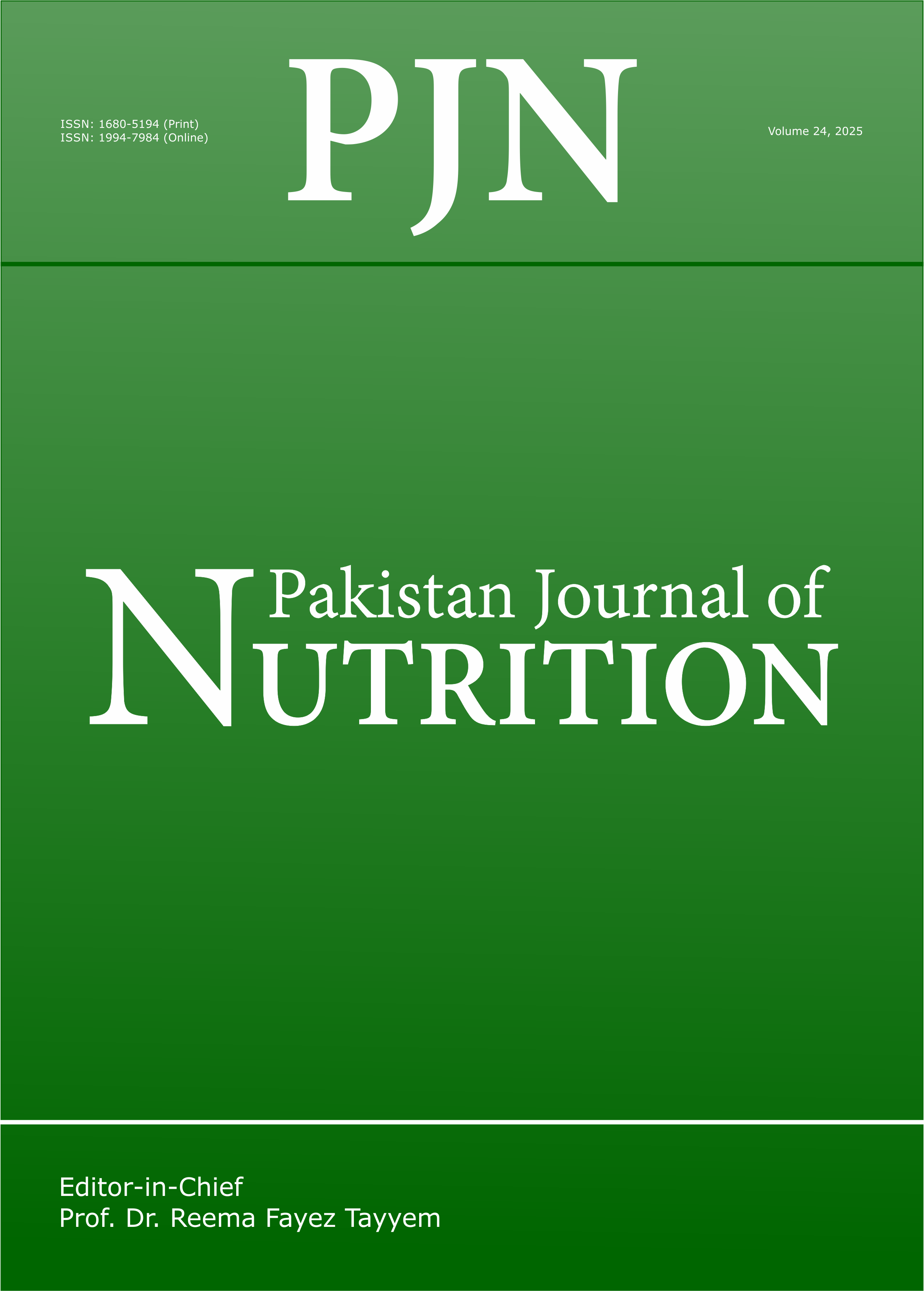Metabolic, Biochemical and Psychiatric Alterations in Healthy Subjects During Ramadan
DOI:
https://doi.org/10.3923/pjn.2007.209.211Keywords:
Anxiety, fasting, metabolism, RamadanAbstract
The Ramadan is the holiest month in the Islamic calendar and Muslims fast during this month. In this study, we evaluated the effect of the Ramadan fasting on body mass index, carbohydrate and lipid metabolism, renal and hepatic function, as well as psychiatric performances. Thirty nine healthy volunteers (32 women and 7 men) underwent anthropometric, biochemical, hematological and psychiatric evaluation one week before and on the last day of the Ramadan. Biochemical markers were measured by standard laboratory methods. Psychiatric evaluation was done by Spiel Berger`s anxiety trait and state scales. Although the body mass index remained stable, fasting blood glucose, triglyceride, total cholesterol levels decreased significantly in the study group. HDL cholesterol levels did not change during the study. Plasma concentration of hemoglobin and proteins decreased. Blood lymphocyte count was also found to have increased during the study. No significant change was observed between the two consequent psychiatric evaluations. Ramadan fasting causes no detrimental effect on health in healthy subjects, on the contrary, it may cause some improvements, particularly on carbohydrate and lipid metabolism. Thus, even in the absence of weight loss, this may contribute to prevention of cardiovascular diseases.
Downloads
Published
Issue
Section
License
Copyright (c) 2007 Asian Network for Scientific Information

This work is licensed under a Creative Commons Attribution 4.0 International License.
This is an open access article distributed under the terms of the Creative Commons Attribution License, which permits unrestricted use, distribution and reproduction in any medium, provided the original author and source are credited.

